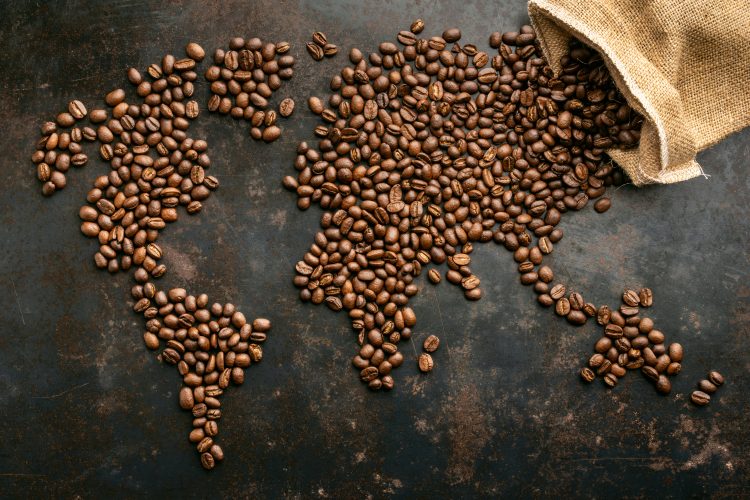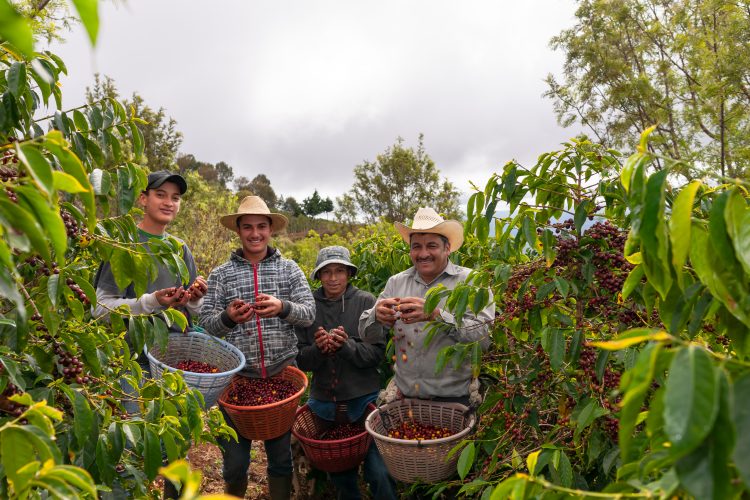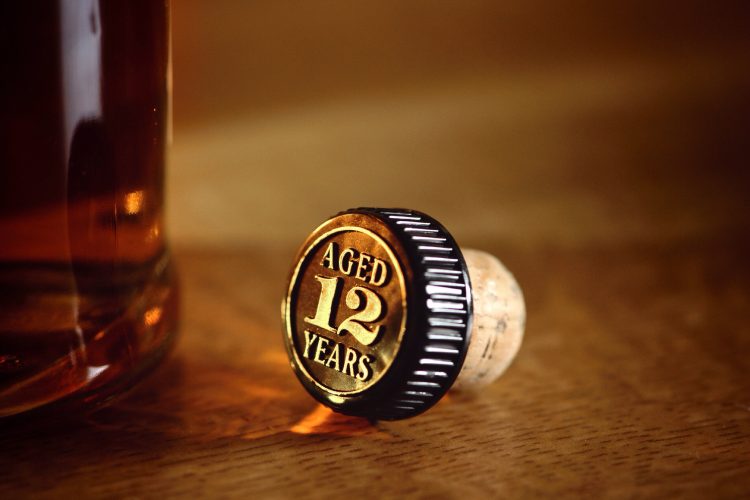Single origin coffee: What is it and why are consumers opting for it?
- Like
- Digg
- Del
- Tumblr
- VKontakte
- Buffer
- Love This
- Odnoklassniki
- Meneame
- Blogger
- Amazon
- Yahoo Mail
- Gmail
- AOL
- Newsvine
- HackerNews
- Evernote
- MySpace
- Mail.ru
- Viadeo
- Line
- Comments
- Yummly
- SMS
- Viber
- Telegram
- Subscribe
- Skype
- Facebook Messenger
- Kakao
- LiveJournal
- Yammer
- Edgar
- Fintel
- Mix
- Instapaper
- Copy Link
Posted: 22 February 2022 | Joshua Minchin (New Food) | No comments yet
Consumers are demanding more traceability from their products than ever before, so what does this mean for the coffee sector? New Food spoke to two craft coffee retailers to find out.


Traceability has been of growing importance for consumers for some time. Aside from the nutritional impact of the product they are buying, shoppers also want to know where their product was made, the journey it has been on, and how ethical and sustainable the process was.
Some sectors are more used to this increased scrutiny on them than others – for example, Single Malt Scotch Whisky bases its entire value on offering consumers very specific traceability information. Coffee is beginning to take inspiration from the whisky sector in marketing more and more products as ‘single origin’ or ‘single estate’.
But what does that actually mean, what’s the difference between the two, and why we seeing these claims in the coffee sector?
Single origin vs. single estate
To get some clarity on the differences between single origin and single state, we sought the expertise of two coffee retailers: Blue Bottle Coffee and Nguyen Coffee Supply.
“There is no official definition of ‘single origin’, which can make things confusing,” revealed Shaun Puklavetz, Coffee Sourcing & Relationship Manager at Blue Bottle Coffee. “In some cases, you might see roasters marketing coffees as single origin, and only share the country of origin, in other cases, roasters may provide the exact plot on a particular farm where the coffee is grown. At Blue Bottle, we have traceability back to the co-operative or mill for all of the coffees we purchase – even those that go into our blends.
“Single estate coffee is a bit more specific. These coffees would come from a particular farm as opposed to a mill or co-operative. We don’t use this term, but we have direct relationships with a number of estates and release coffees that are traceable to a particular farmer.”
Are we seeing a boom for single origin coffees?
The coffee market has been displaying a healthy growth rate for some time now, with the certified coffee market also on the up in the past five years. So, why are we seeing a boom in single label coffees?
“Single estate coffee is becoming more popular because it offers full transparency and traceability of the crop, all the way down to the single farm,” Sahra Nguyen, CEO and Founder of Nguyen Coffee Supply told New Food. “For consumers who care more about where their products come from, single estate coffee offers a level of visibility into the supply chain and assurance in who their dollars support.”
The point raised by Nguyen on consumers wanting to know who exactly they are supporting through their purchases is an important one, and perhaps underpins the popularity of this corner of the coffee sector. Consumers are placing increasing importance on where their coffee comes from and the conditions those that produce it operate in.
“We as consumers care about the supply chain that brings us our products – the days are gone when one can turn a blind eye to the negative human, environmental ramifications of sourcing practices,” said Matthew Longwell, Global Product Manager at Blue Bottle Coffee.
“This impacts food and beverage especially, because it’s not just about the standards of the supply chain; these are things we’re putting into our bodies – and society is more cognisant of the impact these things have than they were previously.”
Ethical credentials
So does single origin or single estate mean ethically conscious coffee? “No, but it does provide a certain amount of traceability,” answered Shaun Puklavetz. “If roasters don’t know where their coffees are coming from, they simply can’t take meaningful steps to improve their practices. That being said, just because a coffee is traceable, doesn’t mean there aren’t issues with the supply chain. Traceability is necessary but not sufficient alone.”
Moreover, as Puklavetz revealed, it’s not necessarily true that single source coffee equals traceable and blended coffee untraceable.
“It’s also important to distinguish between untraceable coffees and well-curated blends,” he said. “Blends can also be just as sustainably sourced as single origin or single estate coffees, as long as the roaster is putting in the appropriate effort. Just because we like the way two coffees taste when blended together, doesn’t mean we can’t put in the appropriate work upstream to ensure those coffees are sustainably sourced. In our case, the coffees we use in our blends are often from the same producers, or even the same lots, as our single origins.”
“As a consumer, it’s important to look for roasters who are dedicating themselves to working with the same producers every year, are transparent about where their coffees are coming from, and have strong relationships with their producers. That could mean they are visiting their producers on a regular basis, or even working with a third party to verify best practices. We do both.”


Single origin coffee is often the result of carefully curated partnerships between grower and retailer
Parting consumers from their cash
A bag of coffee beans can be traced right down to a square metre of land it was grown on, but if it doesn’t sell then this information is irrelevant. So a product must achieve its core aim of being purchased. With this in mind, perhaps two important questions to ask are why is single origin/estate coffee more expensive, and are consumers happy to pay that price?
“Generally, the partnerships established with single estate coffee points to a collective effort to improving and innovating on coffee at the source to understand the unique qualities of the bean; this level of care can lead to increased costs, thus making single estate coffee more expensive to the consumer,” explained Nguyen.
“On the contrary, coffee blends can come from many different origins with less traceability, and potentially less clarification into the unique growing and processing methods to bring out unique qualities of one bean.”
Traceability does cost money directly, but as Nguyen has pointed out, the relationships forged between the retailer and grower often lead to improvements in other areas too, such as sustainability and even flavour. Once again, this comes with its own cost, which has to be passed onto the consumer.
So now to the second of those questions. Are consumers willing to pay more for these benefits?
“I hope so! Coffee supply chains are incredibly complex and distinct from one another; ie, Ethiopian coffee
production looks almost nothing like Brazilian coffee production. As a roaster, it takes a lot of work to understand where your coffees are coming from, sustainably-minded producers need appropriate prices to justify improving their practices, and quality comes at a cost. If consumers aren’t valuing traceability, sustainability and quality, the whole business model breaks down,” said Puklavetz.
“This can be a difficult sell, given the fact that commodity coffee prices have been artificially low for decades, often trading below a producer’s average cost of production. Of course, this means consumers have acclimated to unsustainably low prices. Luckily, it seems like consumers are valuing traceability and quality more and more. This can be seen in our own growth and the uptick we’ve seen in small roasteries and cafes across the world.”


Single Malt Scotch Whisky is one industry that has built significant value on traceability
Learning from other sectors
As mentioned, certain sectors have been quicker to adopt increased traceability than others. Single Malt Scotch Whisky is an easy example to point to, but other sectors such as chocolate and seafood are making strides to improve traceability within their markets. Can coffee learn from some of its neighbouring sectors when it comes to providing consumers with more knowledge about their product?“Yes, definitely,” confirmed Nguyen. “The more we can standardise and popularise traceability across all grades of coffee, the more we can encourage improvements in all types of coffee production. Hopefully, the concept of ‘specialty coffee’ will no longer be a niche segment, but the standard for producing better coffee for all.”
“Premium coffee is several decades behind industries like single malt whisky in terms of focus on provenance,” added Puklavetz.
“Additionally, the type of experience and product is extremely different, for example, shelf life. Therefore, it is not a direct comparison.
“That being said, like whisky, coffee brands are beginning to elevate the way we talk about producers, and the artistry with which they approach coffees has the potential to be the finest in the world. In this manner, I believe that for single origin coffees specifically, capturing the vision and achievements of the producer will be as important as any individual coffee roaster’s approach to selecting, roasting and brewing coffee. This isn’t a one-sided story, but it has been for a long time – although we’re getting better. Both parties operating at their highest levels is a requirement to produce the very best coffees in the world.”
Related topics
Beverages, retail, Sustainability, The consumer, Trade & Economy









